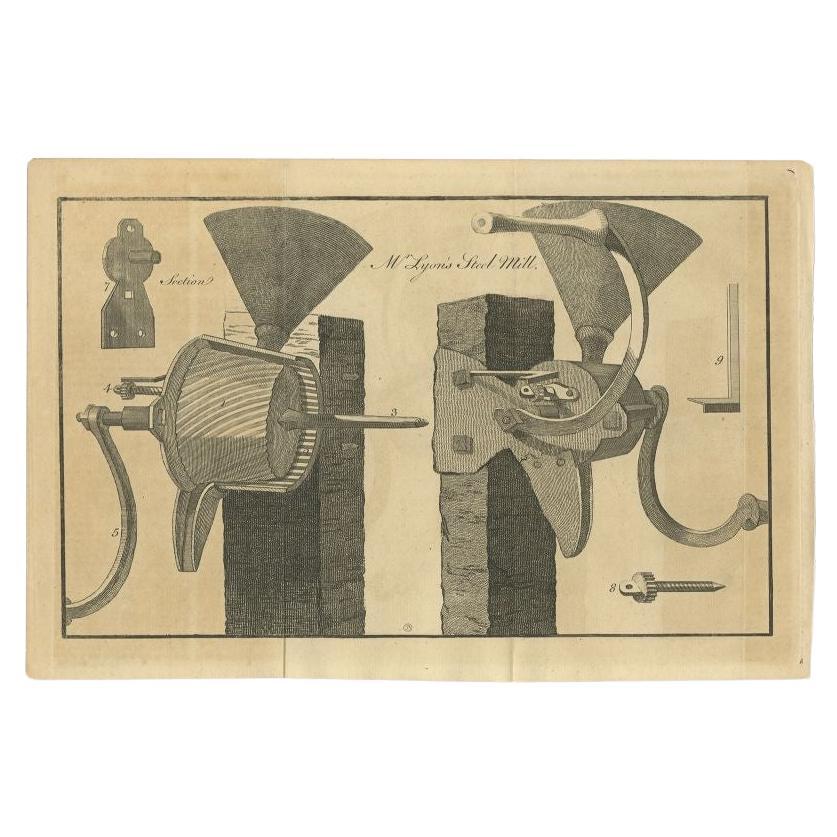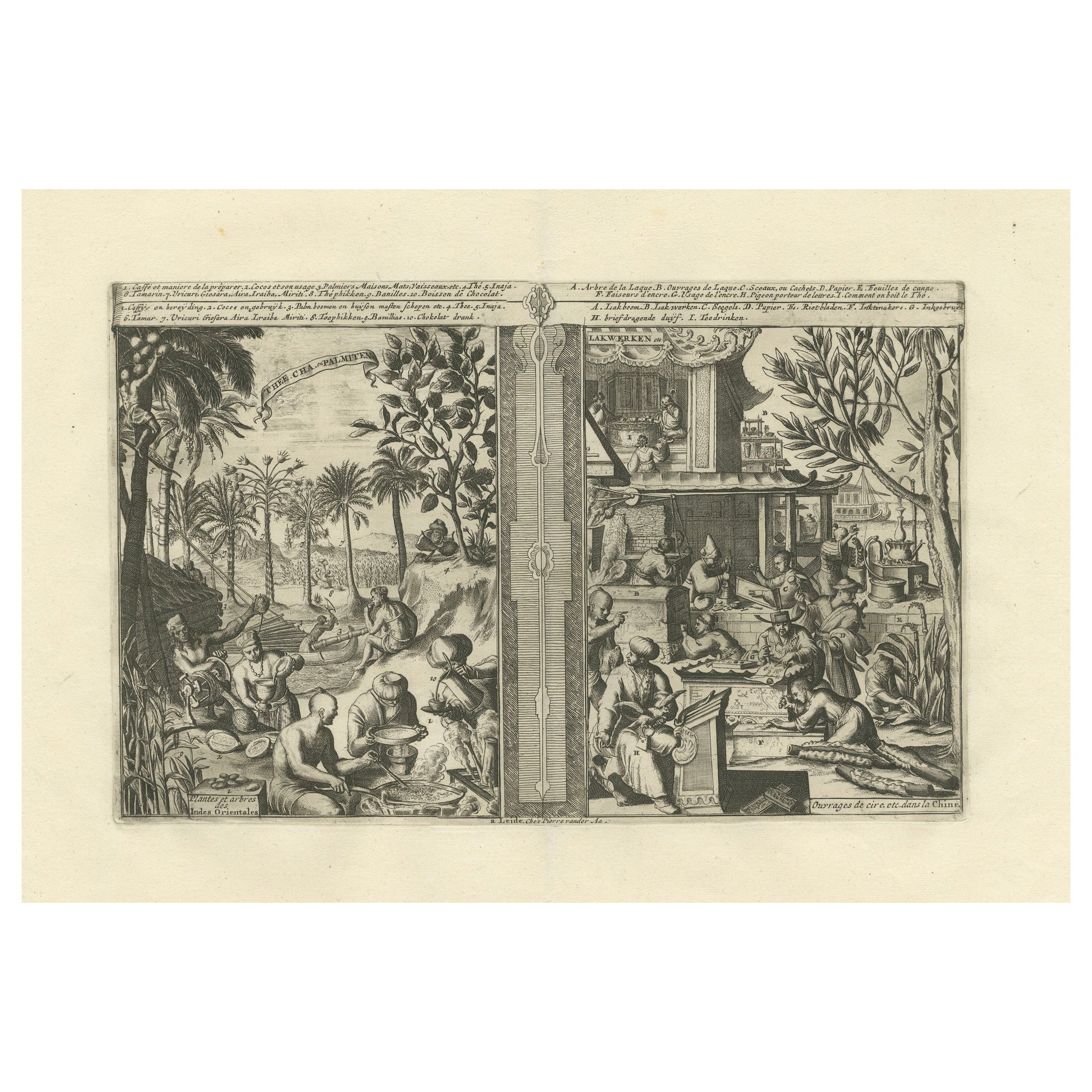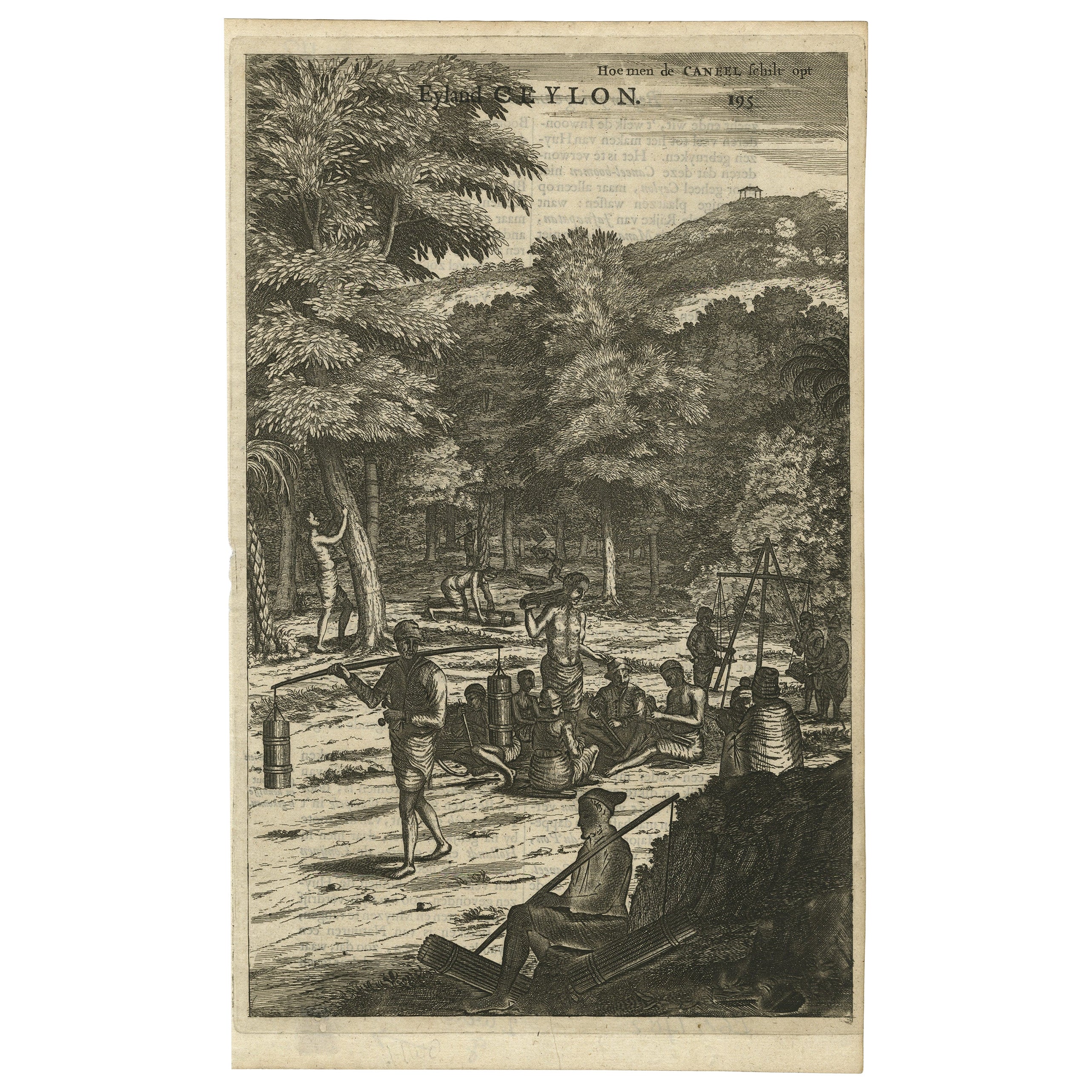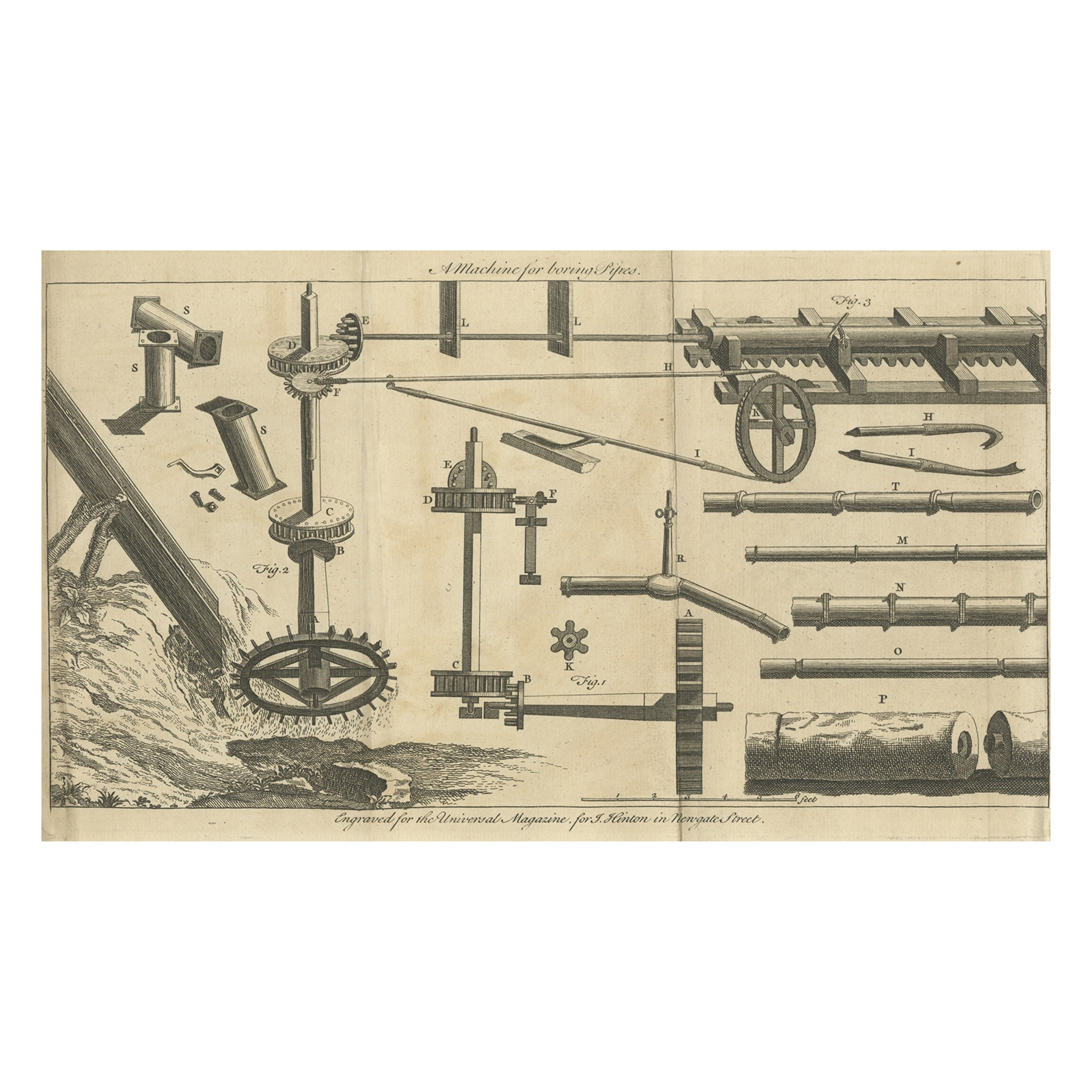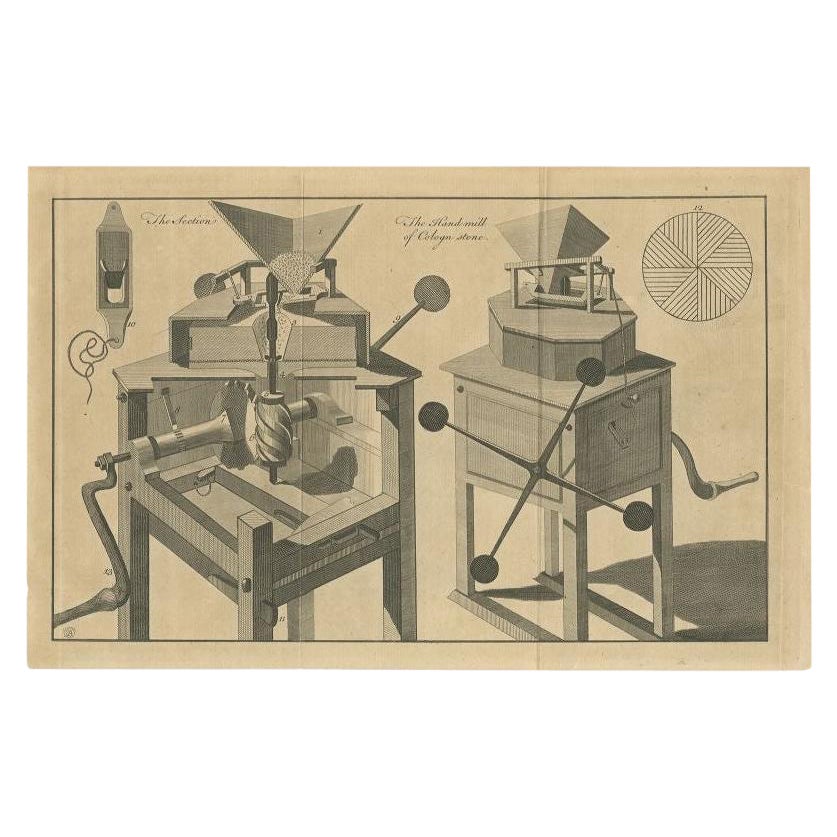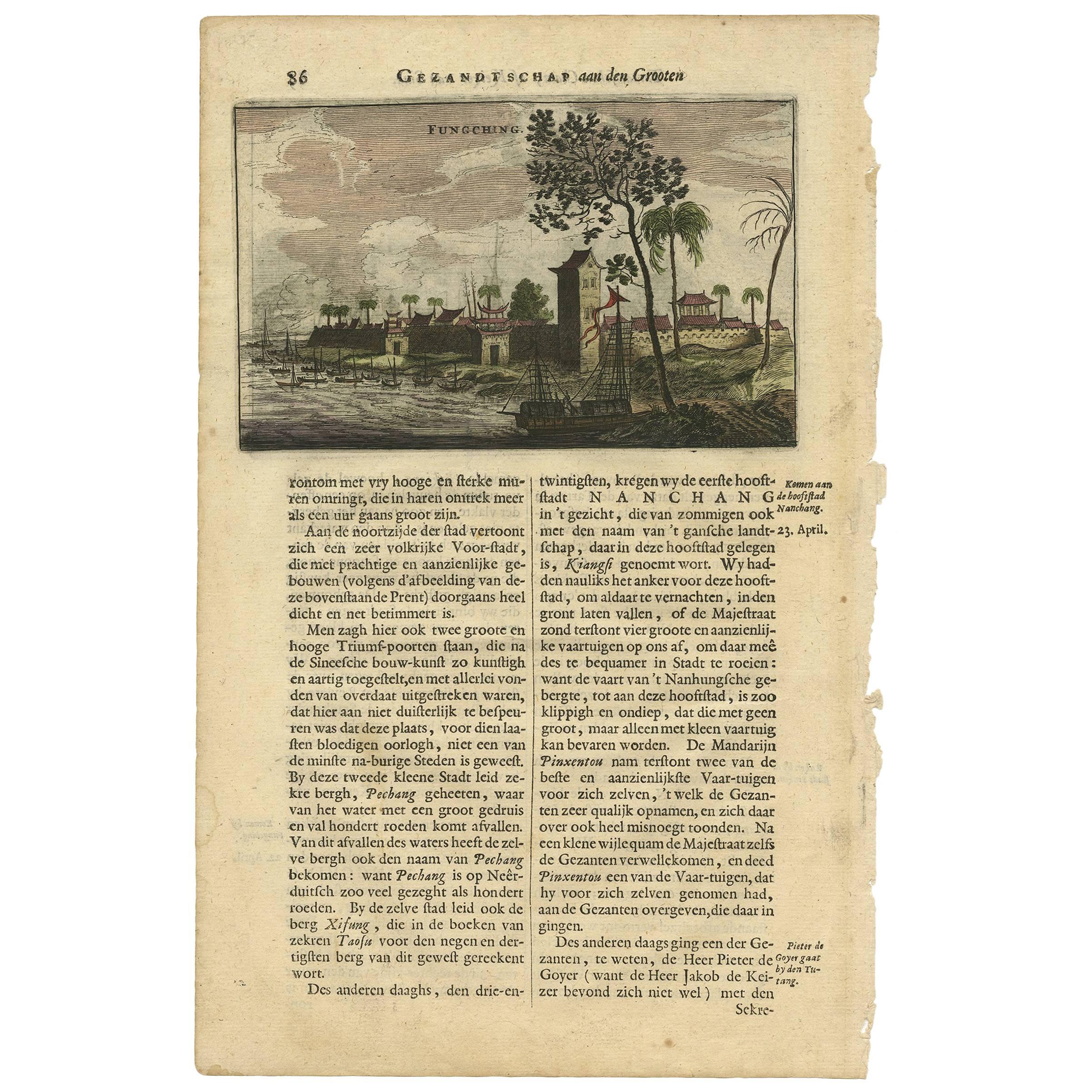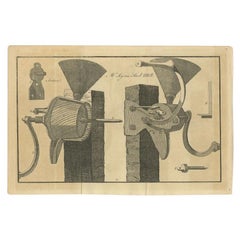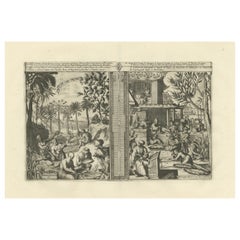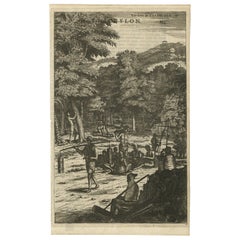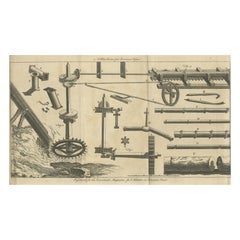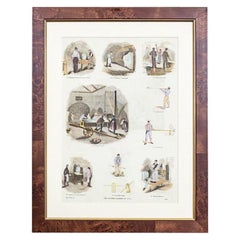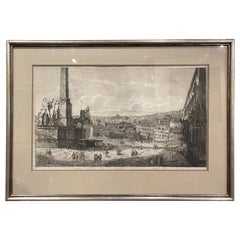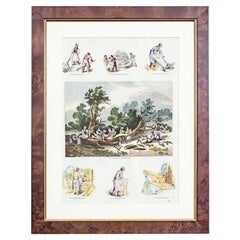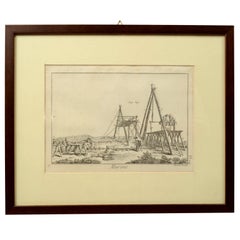Items Similar to Historic View of Sugar Milling in 17th Century America, published in 1673
Want more images or videos?
Request additional images or videos from the seller
1 of 10
Historic View of Sugar Milling in 17th Century America, published in 1673
$354.22
$442.7720% Off
£267.15
£333.9320% Off
€304
€38020% Off
CA$489.74
CA$612.1720% Off
A$548.59
A$685.7420% Off
CHF 288.14
CHF 360.1720% Off
MX$6,670.66
MX$8,338.3320% Off
NOK 3,648.78
NOK 4,560.9720% Off
SEK 3,463.67
SEK 4,329.5920% Off
DKK 2,314.25
DKK 2,892.8120% Off
About the Item
The print titled "AMERIKENS ENTDECKER" is a striking antique copper engraving, crafted in 1673 during the 17th century as part of the German edition of Arnoldus Montanus' influential work, "Die Unbekante Neue Welt" ("The New and Unknown World"). The engraving was executed by Jacob van Meurs, a renowned Dutch engraver and publisher known for his detailed works on geography and history, and it was published in Amsterdam.
Description of the Print:
The engraving measures 17 x 13 cm (approximately 6.6 x 4.7 inches) and is set on a page that is 31 x 19.5 cm (about 12.2 x 7.4 inches). It depicts a vivid scene that illustrates the discovery of America, embodying the era's European perspective on New World explorations. The scene likely captures a moment of interaction between European explorers and indigenous peoples, set against a backdrop of the American landscape, which is rendered with attention to detail typical of the period's engraving work.
About the Makers:
- Arnoldus Montanus (1625-1683) was a Dutch teacher and author with a prolific output spanning theology, history, and geography. His works, particularly on the "new" and "unknown" parts of the world, aimed to educate European readers about distant lands. His narratives were among the primary sources of information about the Americas and the Southland for his contemporaries.
- Jacob van Meurs (1617-1680) was an active engraver and publisher based in Amsterdam from 1651 to 1680. His expertise lay in creating and publishing detailed engravings that accompanied works of geography and history, contributing visually rich illustrations that enhanced the textual descriptions provided by authors like Montanus.
Condition and Presentation:
The print is in good condition, suggesting that it has been well-preserved over the centuries. The clarity of the engraving allows for detailed observation of the historical context and artistic skill involved in its creation.
This particular edition, being part of the German translation edited by Jacob van Meurs in Amsterdam, represents a significant historical artifact, reflecting the collaboration between a skilled engraver and a scholarly author. The print not only serves as a piece of visual history but also as a testament to the Dutch Golden Age's contribution to printed media and early modern cartography and exploration narratives.
The engraving "Amerikens Entdecker" (Discoverers of America) shows a scene that likely illustrates European explorers and their initial interactions with the Americas, but the process depicted in the text alongside the image is specifically about the production of sugar in the New World. The scene in the image likely aims to represent various aspects of European exploration and colonization efforts, possibly including aspects of agricultural practices introduced or utilized by Europeans in the Americas.
The detailed description of the sugar production process in the text involves several steps:
1. Harvesting: The sugar-rich fruits or plants are collected when they have matured sufficiently.
2. Extracting Juice: The harvested produce is crushed or pressed to extract liquid.
3. Boiling the Juice: The extracted liquid is boiled to concentrate the sugar by evaporating water.
4. Molding: The concentrated sugar is then poured into molds to form solid blocks.
5. Drying and Packing: The sugar blocks are dried and prepared for transport or sale.
This process would be an essential part of the economic activities that European colonizers established in the Americas, which involved the intensive cultivation of cash crops like sugar cane. Such activities had significant economic and social impacts, including the establishment of plantations and the utilization of forced labor, dramatically affecting indigenous populations and landscapes. The engraving, therefore, provides a historical snapshot of both the technological aspects of sugar production and the broader context of European exploration and exploitation in the New World.
Translation of the text on page
The text in the image you uploaded appears to be in German. Here is the translation:
"American Mills
The initial stage is the salvation. When the fruit has been hanging long enough to become soft, they lay it on the ground, which becomes a solid mass. This mass is then placed in vats made of various types of wood, where the sugar and water separate. From this, a liquid flows, called Guarapo by the natives, and is collected. The Indians who oversee this process have to be very diligent and constantly check the temperature and state of the sugar.
The process continues by taking the sugar-rich liquid and boiling it. After this, it is cooled and poured into molds. These molds, called Tapas de dulce in local language, are lined with a type of manioc flour, which comes from a plant called Cacua mandioca, and are treated with a sugar syrup called guaracucuremia to solidify it into a solid form. This solid mass is not only good for preservation but also adds a sweetness when consumed.
All the work from the mill to the final product is very laborious, from the planting of the plants to the pressing and processing of the juice. It is a process of transforming the raw product into a useful form, and many hands are involved, ensuring the final product is of good quality. This process, called Maria Antigua, is less known than others because it does not involve the fermentation of the sugar. Instead, it focuses on preserving the natural sweetness of the fruit. This has ensured that the unique flavor of the original fruit is maintained without the addition of artificial flavors."
- Dimensions:Height: 12.21 in (31 cm)Width: 7.68 in (19.5 cm)Depth: 0 in (0.02 mm)
- Materials and Techniques:Paper,Engraved
- Place of Origin:
- Period:1670-1679
- Date of Manufacture:1673
- Condition:Condition: Good given age. Some foxing and some staining in margins. A few wormholes in the text, but not in the image. General age related toning and small imperfections. Please study scans carefully.
- Seller Location:Langweer, NL
- Reference Number:Seller: BG-13596-131stDibs: LU3054341195042
About the Seller
5.0
Recognized Seller
These prestigious sellers are industry leaders and represent the highest echelon for item quality and design.
Platinum Seller
Premium sellers with a 4.7+ rating and 24-hour response times
Established in 2009
1stDibs seller since 2017
2,517 sales on 1stDibs
Typical response time: <1 hour
- ShippingRetrieving quote...Shipping from: Langweer, Netherlands
- Return Policy
Authenticity Guarantee
In the unlikely event there’s an issue with an item’s authenticity, contact us within 1 year for a full refund. DetailsMoney-Back Guarantee
If your item is not as described, is damaged in transit, or does not arrive, contact us within 7 days for a full refund. Details24-Hour Cancellation
You have a 24-hour grace period in which to reconsider your purchase, with no questions asked.Vetted Professional Sellers
Our world-class sellers must adhere to strict standards for service and quality, maintaining the integrity of our listings.Price-Match Guarantee
If you find that a seller listed the same item for a lower price elsewhere, we’ll match it.Trusted Global Delivery
Our best-in-class carrier network provides specialized shipping options worldwide, including custom delivery.More From This Seller
View AllAntique Print of a Steel Mill, 1758
Located in Langweer, NL
Antique print titled 'Mr Lyon's Steel Mill'. Print of a steel mill. This print originates from 'The Universal Magazine of Knowledge and Pleasure'.
Artists...
Category
Antique 18th Century Prints
Materials
Paper
$93 Sale Price
20% Off
Global Harvests and Crafts: From the East Indies to Chinese Lacquerwork, c. 1708
Located in Langweer, NL
Drinks in East India; Lacquerwork and Paper from China. Tea, Cha and Palms / Plants and Trees of the East Indies // Lacquer Works / Wax Works, etc. in China (title on object). The East and West Indies and Other Places (series title)
Description: Presentation in two parts. On the left, the preparation of coconut drink, coffee, and chocolate. A man plucks coconuts from a tree. In the background, a tea plantation. On the right, lacquer work from China featuring a lacquer tree and lacquer workers...
Category
Antique Early 1700s Prints
Materials
Paper
$615 Sale Price
20% Off
Old Print of Farmers Harvesting Cinnamon on the Island Ceylon or Sri Lanka, 1672
Located in Langweer, NL
Antique print, titled: 'Hoe men de Caneel schilt opt Eyland Ceylon.'
This rare original plate shows a group of farmers harvesting cinnamon on the island of Ceylon / Sri Lanka. Du...
Category
Antique 1670s Prints
Materials
Paper
$354 Sale Price
20% Off
Original Antique Print of a Machine for Boring Pipes, ca.1760
Located in Langweer, NL
Antique print titled 'A machine for boring Pipes'.
Print of a machine for boring pipes. This print originates from 'The Universal Magazine of Kn...
Category
Antique 1760s Prints
Materials
Paper
$261 Sale Price
20% Off
Antique Print of an Hand Mill of Cologn Stone, 1758
Located in Langweer, NL
Antique print titled 'The Hand mill of Cologn stone'. Print of an hand mill. This print originates from 'The Universal Magazine of Knowledge and Pleasure'.
Artists and Engravers:...
Category
Antique 18th Century Prints
Materials
Paper
$130 Sale Price
20% Off
Antique Print of the City of Fungching, China by J. Nieuhof, 1665
Located in Langweer, NL
This print originates from a Dutch edition of: 'Gezandtschap der Nederlandtsche Oost-Indische Compagnie ... aan den grooten Tartarischen Cham, den tegenwoordigen keizer van China.' (...
Category
Antique Mid-17th Century Prints
Materials
Paper
$195 Sale Price
20% Off
You May Also Like
Vintage Print Illustration of Old Crafts, Glass Working, framed
Located in Opole, PL
We present you this illustration printed from a book with depictions of old crafts – glass working in this case.
The graphic is closed in passe-portout and a wooden frame with a gla...
Category
20th Century European Prints
Materials
Glass, Wood
$186 Sale Price
20% Off
19th Century Italian Neo Classical Veduta Generale del Monte Quirinale Engraving
Located in Dallas, TX
Decorate an office or study with this antique black and white engraving. Hand colored in Italy circa 1760, the large monochromatic etching is set in a black and gilt frame with protective glass, and depicts the "Veduta Generale del Monte...
Category
Antique Early 19th Century Italian Neoclassical Prints
Materials
Paper
Vintage Print Illustration of Old Crafts, Tanning, framed
Located in Opole, PL
We present you this illustration printed from a book with depictions of old crafts – tanning in this case.
The graphic is closed in passe-portout and a wooden frame with a glass.
...
Category
20th Century European Prints
Materials
Glass, Wood
$99 Sale Price
57% Off
Engraving Print from the Panckoucke Encyclopédie Nautical Subject 1782-1832
Located in Milan, IT
Print by engraving on copper plate from the Panckoucke Encyclopédie méthodique, end of the 18th century,volume Marine Planches (more than 1,500 figures dealing with all subjects on the marina: planes, construction, carpentry, tree trunks, armaments of maneuvers, ropes, sails, artillery, ship maneuvers and combat tactics). This is the plate no. n. 24, pag. 69 fig. 341 ; with frame cm 38.3 x 31.5. Ship ropes are depicted. The Print has the "Benard direxit...
Category
Antique 1790s French Nautical Objects
Materials
Paper
Ancient Valenza Jewelry City Etching
Located in Alessandria, Piemonte
Ancient etching from 1707 representing VALENZA, the Italian city in the province of Alessandria, famous throughout the world for its gold processing any jewelry factories.
Author of ...
Category
Antique Early 18th Century Italian Other Prints
Materials
Paper
Vintage Print Illustration of Old Crafts, Bell Founding, framed
Located in Opole, PL
We present you this illustration printed from a book with depictions of old crafts – bell-founding in this case.
This is one of the four graphics from the series on this topic. Each...
Category
20th Century European Prints
Materials
Glass, Wood
$99 Sale Price
57% Off
More Ways To Browse
Holland America Line
Antique Metal Coffee Pot
Antique Piano Box
Antique Porcelain Trinket Boxes
Antique Pottery Cats
Antique Rattles
Antique Rice Box
Antique Shagreen Box
Antique Shell Vanity
Antique Window Shutters
Antique Wrought Iron Brackets
Art Deco Skyscraper Shade
Art Deco Uranium Glass
Art Nouveau Tea Pot
Asian Style Furniture Burl
Atelier Hugo
Baby Rattle
Benin Bronze
